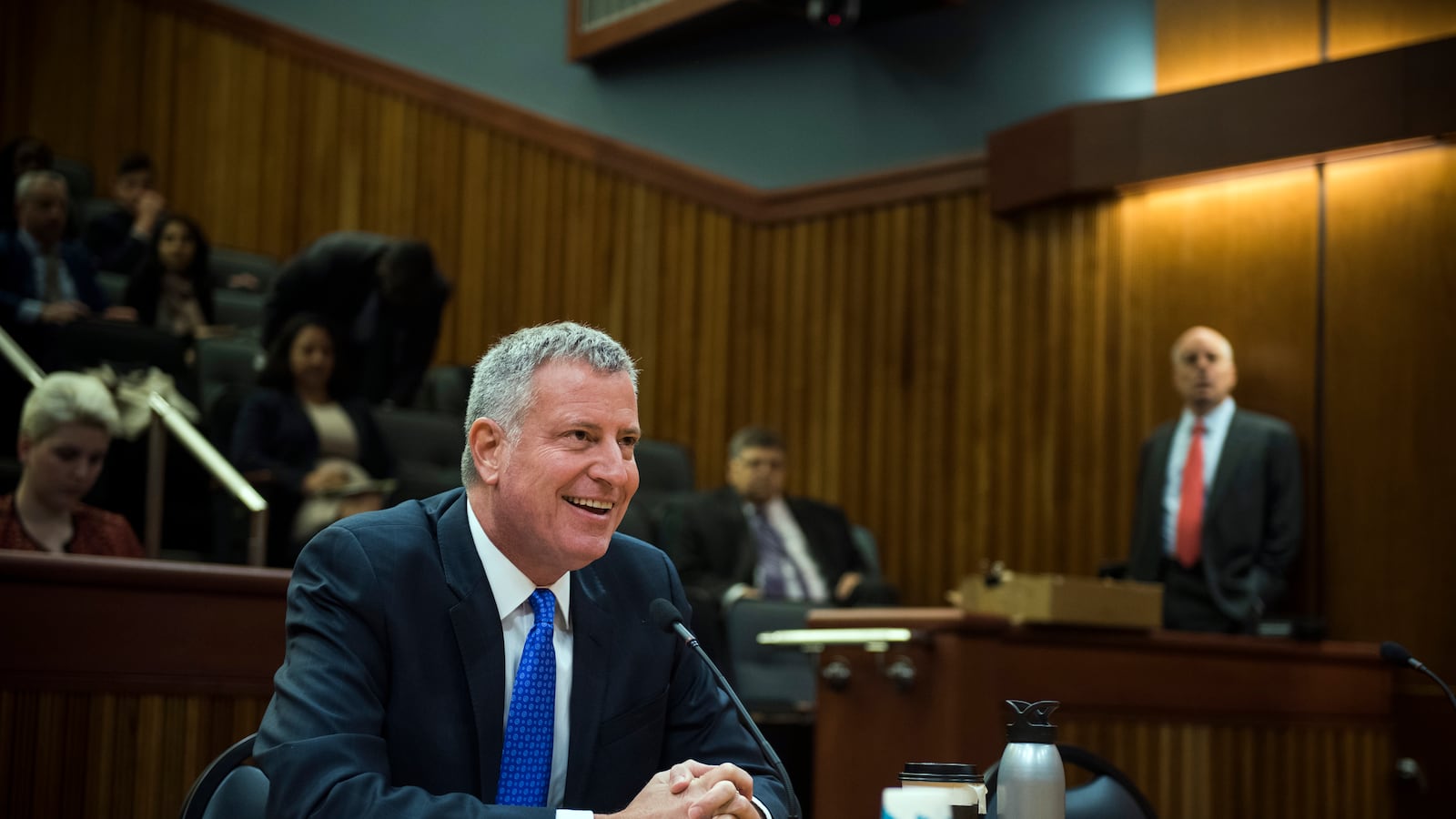Should the mayor of New York City continue to control the city’s school system?
That was the big question posed Monday at the first of many state-led forums examining mayoral control, which is set to expire in 2022.
Mayoral control of city schools — as opposed to the former fractured system of locally elected school boards — is written into state law, and any changes would need the approval of state lawmakers.
During Monday’s meeting, New York City’s schools Chancellor Richard Carranza — appointed last year by Mayor Bill de Blasio to lead the nation’s largest school system — said there are benefits and challenges to both elected and appointed leadership, but that the current system allows for more agile decision-making.
Members of the Assembly’s education committee hosted the Manhattan forum to begin exploring possible changes to the system. State lawmakers promised they would solicit feedback when they extended Mayor Bill de Blasio’s power overseeing city schools earlier this year, said Bronx Assemblyman Michael Benedetto, a Democrat who chairs the committee.
“This is the first of what I look upon as a rather long process of investigation of what we can do in the year 2022,” Benedetto said.
Monday’s conversation, dominated by complaints with the current setup, was reminiscent of a public hearing in March before state lawmakers extended de Blasio’s tenure over city schools until 2022, after he leaves office.
In varying degrees, parent leaders described wanting more power on community education councils, which are the parent-led boards in each school district that are tasked with approving school rezoning plans. One example was giving these bodies a say over the hiring of the schools chancellor.
A few Asian-American parents accused both Chancellor Richard Carranza and the mayor of focusing too much on integration policies, calling their support of such policies racist against Asian students. They pointed to the mayor’s failed proposal to remove the admissions test for the starkly segregated specialized high schools, where 51% of admissions offers last year went to Asian students, in order to diversify them. From other quarters, though, both the mayor and the chancellor have also faced criticism for not embracing integration policies forcefully enough in what is considered the nation’s most segregated school system.
But Benedetto repeatedly urged parents and other speakers to focus less on criticisms of both men and more on the system as a whole.
When lawmakers extended mayoral control, they also approved some tweaks to membership of parent councils and the Panel for Educational Policy, a mayor-appointed board that must approve major education department contracts and policy changes but is largely viewed as a rubber stamp for whoever is in office.
The composition of the PEP continued to be a point of concern on Monday, including their purview over millions of dollars in major contracts. Other parents called for more significant changes. Kim Watkins, the president of the parent council in Manhattan’s District 3, which includes the Upper West Side and Harlem, called for a citywide school board to replace the current system.
“I think we are in an interesting period of time in our lives and our city where we need more democracy, not less of it,” Watkins said. “We need more commonsense checks and balances in all our layers of government.”
In his own testimony, Carranza defended the current system of centralized mayoral control. He pointed to his and the mayor’s town halls with parents as one of several ways the department has tuned into community concerns. He also touted academic highlights during de Blasio’s tenure, such as the system’s record-high graduation rate, which is also closely tied to policy changes on the state level.
He said that the current system allows for an “unfettered” way to make policy decisions without navigating the politics of an elected school board, and that New Yorkers can keep the mayor accountable through voting for who they want in that seat. If he had all afternoon, Carranza said, he would share “war stories” about working with school boards in other cities.
“There is no panacea. If you have an elected school board versus mayoral accountability, there are good and challenging aspects to both systems,” Carranza told lawmakers. “I think for me the biggest difference — and again at the sake of not wearing this phrase out — is elections matter.”
Should mayoral control be maintained, Councilman Mark Treyger said the mayor needs more checks and balances, and he’d like the City Council to have more say over the school system. Treyger, the chair of the City Council’s education committee, has spearheaded multiple city laws that force the education department to produce data reports, such as a recent one over PTA fundraising. But that’s not enough, he said.
“I don’t need them to regurgitate things I already know,” Treyger said.
The next forum has not yet been scheduled, but starting this early will allow lawmakers to “investigate ahead of time” the possibilities for what the city’s school system should look like, Benedetto said.

